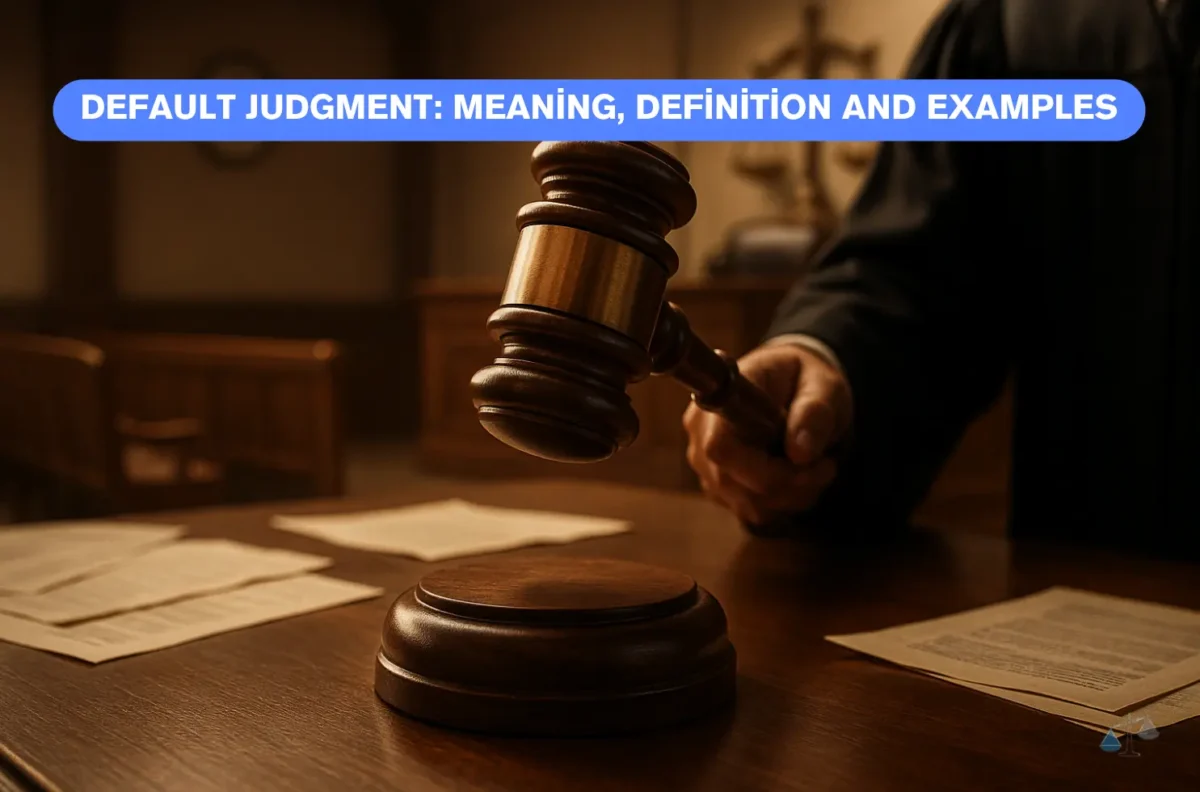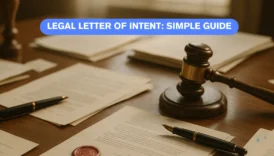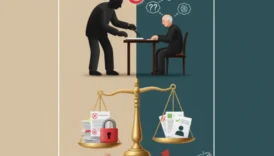Default Judgment: Meaning, Definition and Examples

- Default Judgment: Meaning, Definition and Examples
- What Is a Default Judgment?
- Legal Basis of Default Judgment
- Examples of Default Judgment
- 1. Credit Card Debt Case
- 2. Landlord-Tenant Dispute
- 3. Breach of Contract
- 4. Family Law Case
- Why Default Judgment Matters
- FAQ For Default Judgment
- What happens after a default judgment is entered?
- Can a default judgment be overturned?
- Is a default judgment the same as a summary judgment?
- Does a default judgment affect credit scores?
- Can the plaintiff still collect if the defendant declares bankruptcy?
- Table of Contents For Default Judgment
- Keywords for Default Judgment
What Is a Default Judgment?
Simple definition of a legal default judgment:
A default judgment in legal terms is a court’s decision made in favor of one party because the opposing party failed to respond, appear, or defend the case. In simpler terms, if a defendant ignores a lawsuit or misses court deadlines, the court may automatically rule for the plaintiff without a trial. This judgment is legally binding and enforceable, just like one reached after a full hearing.
Legal Basis of Default Judgment
A default judgment is governed by both civil procedure rules and court regulations within each jurisdiction. In the U.S., it’s typically defined under Rule 55 of the Federal Rules of Civil Procedure, which outlines how a judgment can be entered when a party fails to plead or otherwise defend.
Courts must ensure that the absent party was properly notified before granting such a ruling, maintaining fairness and due process.
Examples of Default Judgment
A default judgment can arise in various legal settings — from unpaid debts to contract disputes.
Below are common real-world examples:
1. Credit Card Debt Case
If a borrower fails to answer a creditor’s lawsuit within the given time frame (usually 20–30 days), the court can issue a default judgment for the full amount owed, plus interest and fees.
2. Landlord-Tenant Dispute
A tenant who ignores an eviction notice or doesn’t attend court may automatically lose possession of the property. The landlord then gains legal authority to evict through a default ruling.
3. Breach of Contract
When one party fails to appear to defend a breach of contract claim, the plaintiff may receive damages, specific performance, or both — all without trial.
4. Family Law Case
In custody or divorce proceedings, if one spouse doesn’t file a response, the court may grant the requesting spouse’s terms by default.
In summary:
A default judgment serves as a procedural shortcut — saving court time but carrying serious consequences for the unresponsive party.
Why Default Judgment Matters
Default judgments matter because they uphold the efficiency and authority of the court system. They discourage delay tactics and ensure that litigation can progress even when one party is uncooperative.
For plaintiffs, it provides a fast path to justice — avoiding long trials. For defendants, it’s a warning: ignoring legal paperwork can result in losing rights without ever being heard.
Additionally, once entered, a default judgment can:
- Appear on credit reports
- Lead to wage garnishment
- Allow property liens or asset seizure
In short, it’s not just a procedural issue — it can have long-lasting financial and reputational impact.
FAQ For Default Judgment
What happens after a default judgment is entered?
Once issued, the winning party (usually the plaintiff) can take steps to enforce it — such as garnishing wages, seizing bank accounts, or placing liens on property.
Can a default judgment be overturned?
Yes, but only in limited circumstances. A defendant can request to “set aside” the judgment if they can prove they were not properly served or had a valid reason (like illness or excusable neglect) for missing deadlines.
Is a default judgment the same as a summary judgment?
No. A summary judgment is decided based on evidence presented by both sides, while a default judgment occurs when one side fails to appear or respond.
Does a default judgment affect credit scores?
Absolutely. Once recorded, it becomes part of the public record and can lower the defendant’s credit score, often remaining visible for several years.
Can the plaintiff still collect if the defendant declares bankruptcy?
It depends. Some debts from default judgments are dischargeable in bankruptcy, but others — like fraud-related claims — may still be enforceable.
Table of Contents For Default Judgment
Keywords for Default Judgment
- Default Judgment
- What Is a Default Judgment?
- Default Judgment Meaning
- Default Judgment Definition
- Default Judgment Simple Definition
- Legal Basis of Default Judgment
- Examples of Default Judgment
- Why Default Judgment Matters
- FAQ For Default Judgment






